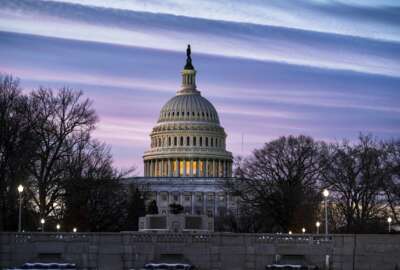Delete, erase, shred: enemies of federal record-keepers
By NANCY BENAC Associated Press WASHINGTON (AP) — In the never-ending quest to preserve the government’s history, there have been plenty of weapons of...
By NANCY BENAC
Associated Press
WASHINGTON (AP) — In the never-ending quest to preserve the government’s history, there have been plenty of weapons of mass destruction.
Before delete keys on computers, there were paper shredders, erase buttons on tape recorders and trash cans.
Think Oliver North jamming a shredder with papers from an 18-inch stack of documents during the Iran-Contra investigation.
Or the mysterious 18 1/2-minute gap in President Richard Nixon’s White House tapes.
The current dust-up over access to Hillary Rodham Clinton’s emails as secretary of state is causing historians and government record-keepers to take stock of what may be a best-of-times, worst-of-times moment for saving government records.
In the age of email, texting, Twitter and beyond, there are more records than ever on the workings of government.
At the same time, though, it’s easy to make those records disappear, and it’s challenging to find a manageable way to capture what’s significant and cull the chaff. Just 3 percent to 5 percent of government records are of “permanent value,” according to the National Archives.
There’s also a tendency by wary government officials to pre-emptively cover their tracks by avoiding the creation of records in the first place.
Add that all up, says Princeton history and public affairs professor Julian Zelizer, and “a lot of historians are worried about how we’ll really understand what went on when the record is becoming thinner.”
The National Archives’ Paul Wester, chief records officer for the government, acknowledges that “the situation is not as good as we would like it to be,” particularly during the challenging transition from paper records to electronic.
The State Department has ordered an internal audit of its record keeping, with Secretary of State John Kerry calling the review critical to “preserve a full and complete record of American foreign policy” and for the U.S. public to have access to that information.
Each year, federal agencies are required to send the archives a report on how they’re doing at managing their records. While the last report showed improvement, most agencies were still “at high to moderate risk of compromising the integrity, authenticity and reliability of their records,” the archives reported.
Wester says the archivists were surprised by revelations that Clinton had used only a personal email account and server during her days as secretary of state, raising concerns that “federal records may have been alienated from the Department of State’s official record-keeping systems,” as he put it in a letter to the department this month.
Clinton has said she used a personal email account for convenience, not to hide records. She says she turned over all government-related emails to the State Department and deleted tens of thousands that were personal.
The Republican leading a House investigation of the 2012 attacks against Americans in Benghazi, Libya, when Clinton was secretary of state, said Friday that Clinton had wiped her email server “clean,” permanently deleting all emails from it. But Clinton’s lawyer said the department had all her work-related emails from the personal account.
Historian Luke Nichter of Texas A&M University-Central Texas, said the episode demonstrates that record preservation rules are as flawed now as they were in Nixon’s time. He’s particularly concerned that individual agencies and, in some cases, individual officials, draw the line between what records should be part of the public record and what’s personal.
He adds that Nixon’s downfall, sealed by his taped conversations, taught modern politicians the value of “pre-emptive sanitization” — circumventing the records process — and they’re still at it today.
For example, he says, officials from both the Obama and George W. Bush administrations would sometimes meet people outside the White House complex so the contact wouldn’t show up on visitor logs.
Obfuscation and destruction of records are nothing new, and Zelizer says there are “tons of gaps” in the government’s history.
While some gaps are known, there are surely others that no one has an inkling of.
“Sometimes we don’t know what we don’t know,” says Nichter.
Among the known gaps:
–North, the National Security Council aide, testified during 1987 hearings over the Iran-Contra scandal — concerning secret arms sales to Iran and illegal U.S. support for Nicaraguan rebels — that he was shredding documents even as Justice Department officials were reviewing papers in the next room.
“I mean, they were sitting in my office, and the shredder was right outside, and I walked out and shredded documents,” he told congressional investigators.
His secretary, Fawn Hall, who also smuggled out papers in her blouse, said the stack for the shredder was so tall that the machine jammed.
–Nixon aide G. Gordon Liddy recalled “shredding stuff left and right” after the Watergate break-in.
More than four decades later, people still speculate about what might have been on the suspicious gap in Nixon’s tapes, despite secretary Rose Mary Woods’ explanation that she accidentally erased part of the tape when she stretched to answer a phone.
Nixon, it turns out, may have represented a high-water mark in records preservation by documenting himself so thoroughly, says Steven Aftergood, director of the Project on Government Secrecy at the Federation of American Scientists.
“His successors,” says Aftergood, “seem determined not to follow in his footsteps.”
___
Follow Nancy Benac on Twitter at http://twitter.com/nbenac
___
Online:
National Archives record management: http://tinyurl.com/kqkhqj8
Copyright 2015 The Associated Press. All rights reserved. This material may not be published, broadcast, rewritten or redistributed.
Copyright © 2025 The Associated Press. All rights reserved. This website is not intended for users located within the European Economic Area.






